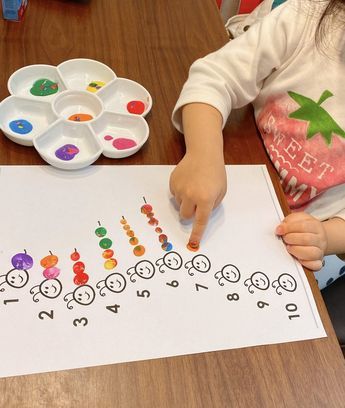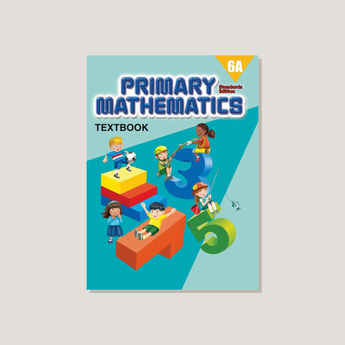Encouraging a growth mindset to help children face struggles in primary math
Wiki Article
Essential Techniques to Improve Your Recognizing of Mathematics Basics
Enhancing one's understanding of math basics calls for a strategic approach. Grasping fundamental operations is important, as they act as the structure for a lot more complex ideas. Routine technique, integrated with making use of visual help, can greatly improve comprehension. Damaging troubles right into manageable components often leads to more clear understandings. As individuals check out these techniques, they might uncover unexpected links that additionally improve their mathematical trip (struggles in primary math). What might they reveal following?Recognize the Essentials: Structure a Strong Foundation

On top of that, experience with decimals, percentages, and portions is vital, as these aspects typically appear in real-world applications. struggles in primary math. Recognizing patterns and creating problem-solving skills even more enhances mathematical understanding
Involving with aesthetic help, manipulatives, and interactive tools can additionally help with a deeper understanding of standard ideas. Moreover, students take advantage of breaking down complex issues right into workable components, that makes the learning process much less overwhelming. Eventually, a solid grasp of math fundamentals not just prepares pupils for higher-level math yet likewise fosters self-confidence in their abilities, allowing them to take on obstacles with better convenience.
Exercise Routinely: The Trick to Mastery
Regular practice is crucial for mastering mathematical principles. Engaging in everyday technique sessions allows individuals to strengthen their understanding while taking on diverse problem kinds improves their analytical abilities. This mix cultivates a much deeper comprehension of mathematics and develops self-confidence in using found out abilities.
Daily Practice Procedure
Constant technique is vital for anyone seeking to understand mathematics fundamentals, as it enhances principles and boosts analytic skills. Daily session provide a chance for students to involve with material actively, solidifying their understanding via repetition. Establishing a routine aids to produce self-control and urges a sense of liability. Short, concentrated sessions are often extra efficient than longer, erratic ones, permitting sustained concentration and retention. Additionally, tracking progression throughout these sessions can inspire people to push via challenges. Including a range of workouts, while still staying within the very same topic, warranties that learners are regularly developing on their expertise. Ultimately, daily practice lays the foundation for a much deeper understanding of mathematical principles, fostering confidence and proficiency.Differed Problem Kind
Engaging with a range of trouble kinds is necessary for understanding mathematics basics, as it subjects students to different scenarios and difficulties. This variety not just strengthens problem-solving skills but additionally boosts adaptability in using mathematical concepts. By exercising a variety of problems, pupils run into distinct scenarios that require them to assume seriously and creatively. In addition, changing in between trouble types can improve retention of mathematical principles and improve general understanding. Regular direct exposure to different challenges ensures that students do not come to be extremely dependent on specific approaches, cultivating a deeper understanding of the topic. Ultimately, incorporating varied issues right into practice routines equips students with the tools needed to deal with complicated mathematical concerns with self-confidence.Use Visual Aids: Making Principles Substantial
Aesthetic help play a vital role in making abstract mathematical concepts a lot more tangible for students. They offer concrete depictions of ideas, allowing pupils to picture connections and patterns that might otherwise continue to be elusive. Tools such as graphes, representations, and graphs aid to show mathematical principles, permitting learners to grasp ideas like fractions, geometry, and algebra with better convenience.Manipulatives, such as blocks or counters, can even more enhance understanding by involving trainees in hands-on knowing. This responsive technique enables people to experiment and check out mathematical concepts in a physical context. Additionally, digital sources and interactive software application can create vibrant visualizations that adjust to a student's rate, cultivating a deeper comprehension of complicated subjects.
Damage Issues Down: Streamlining Facility Obstacles
Several students run into challenges when faced with complicated mathematical troubles, usually feeling bewildered by the intricacies included. To browse these troubles, damaging issues down right into smaller sized, convenient parts confirms to be an important approach (struggles in primary math). By isolating private parts, pupils can focus on resolving each segment systematically, reducing stress and anxiety and enhancing comprehensionThis method motivates a step-by-step strategy, allowing students to recognize patterns and connections within the problem. When taking on a multi-step equation, damaging it down into different procedures can make clear the path to the remedy. Furthermore, trainees can apply this strategy to word issues by drawing out key details and restating the problem in easier terms.
Inevitably, simplifying complex obstacles via decomposition not just fosters a deeper understanding of mathematical concepts however also constructs confidence, making it possible for trainees to approach future issues with higher ease and assurance.
Associate Mathematics to The Real World: Finding Practical Applications
Recognizing the relevance of mathematics in everyday scenarios can significantly boost a trainee's learning experience. By connecting math concepts to practical applications, trainees can establish a much deeper understanding and gratitude for the topic. For example, budgeting calls for basic arithmetic and algebraic abilities to manage savings and expenses effectively. When changing recipes, food preparation supplies chances to check out proportions and ratios. In addition, understanding geometry is necessary when determining the area of a yard or the quantity of a container.In the round of innovation, math underpins programming and information evaluation, highlighting its significance in the modern-day workforce. Involving with real-life scenarios allows students to see mathematics as a device for analytic as opposed to an abstract concept. By making these links, trainees can cultivate a much more favorable perspective toward mathematics, encouraging them to learn and use these abilities in different contexts.
Work together With Others: Understanding Via Conversation
Although mathematical ideas can frequently appear isolated, collaborating with others via conversation can substantially improve understanding and retention. Engaging with peers allows individuals to verbalize their thoughts, make clear doubts, and explore various point of views on complicated subjects. This exchange not just enhances their own knowledge yet also exposes them to alternate analytic approaches.Seminar can foster a supportive learning environment where participants really feel comfy asking inquiries and sharing understandings. This public approach urges much deeper cognitive engagement, as individuals are encouraged to describe their thinking and safeguard their techniques. Reviewing mathematical ideas usually highlights connections in between principles, making them much more relatable and easier to realize.
Additionally, cooperation can result in the exploration of new resources or devices that people may not have actually thought about. Eventually, discovering with discussion grows a feeling of community, transforming the study of math from a solitary endeavor into a cumulative trip of understanding.
Welcome Mistakes: Transforming Errors Into Understanding Opportunities
Errors are typically deemed troubles in the understanding process, yet they can offer as effective stimulants for development and understanding in maths. They have the opportunity to analyze their believed processes and recognize mistaken beliefs when learners run into errors. This representation cultivates a much deeper understanding of mathematical ideas.Welcoming errors encourages students to adopt a development state of mind, where difficulties are considered as chances to improve as opposed to obstacles. By exploring next errors, individuals can pinpoint specific locations requiring support, causing targeted technique and proficiency. On top of that, sharing mistakes with peers can create a joint learning atmosphere where cumulative analytical embellishments.

Regularly Asked Concerns
Exactly How Can I Overcome Mathematics Anxiety Properly?
To get over mathematics anxiousness successfully, individuals can exercise relaxation methods, look for assistance from peers or tutors, break jobs right into smaller actions, and slowly build self-confidence with favorable reinforcement and consistent technique in a low-pressure environment.What Resources Can Assist Me Understand Mathematics Better?
Numerous sources can aid in comprehending mathematics much better, consisting of on-line tutorials, instructional apps, books, study hall, and educational video clips. Involving with several styles assists cater and strengthen principles to different knowing designs efficiently.Exist Details Applications for Practicing Math Skills?
Numerous applications exist for exercising mathematics skills, such as Khan Academy, Photomath, and Get More Info Natural born player. These applications supply interactive exercises, descriptions, and individualized finding out experiences, aiding users reinforce their understanding and effectiveness in different mathematical concepts.Exactly how Do I Stay Motivated When Studying Mathematics?
To stay motivated while examining mathematics, one ought to set possible goals, incentive progression, integrate varied resources like video games or video clips, and keep a positive state of mind, seeing challenges as possibilities for growth instead of barriers.What Are Some Typical Misconceptions About Mathematics?
Usual false impressions about math consist of the ideas that it is simply about numbers, calls for natural talent, and lacks real-world applications. Lots of likewise presume that fighting with math indicates a lack of knowledge or capability.Consistent method is essential for anybody seeking to master mathematics principles, as it reinforces principles and improves analytical skills. Engaging with a range of issue kinds is vital for grasping math basics, as it exposes learners to different scenarios and obstacles. By connecting mathematics concepts to practical applications, students can create a much deeper understanding and admiration for the subject. Involving with real-life scenarios permits students to see math as a device for analytic great post to read rather than an abstract principle. Countless applications exist for practicing math skills, such as Khan Academy, Photomath, and Natural born player.
Report this wiki page